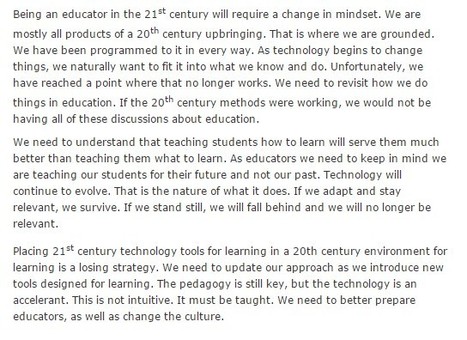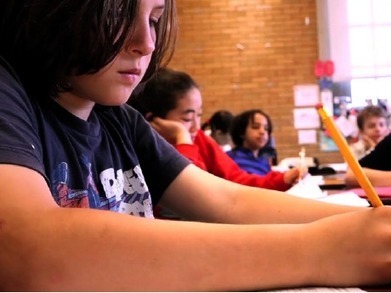What does it mean to be a great teacher? In the second part of this article, Matt Bromley continues his focus on the traits and skills of ‘master teachers’5, Push and pull your peers
Great teachers create opportunities to increase purposeful peer interaction, help establish and consolidate new norms of teachers working together, and build respect for each other. Great teachers pull or draw people in with the energy and excitement of their own committed practice and also push and nudge colleagues forwards with their relentless commitment to being better and doing better for all their students. Therefore, great teachers have to trust processes of peer interaction as well as particular people. These processes are ones that maximise their organisation’s collective capabilities and improve its problem-solving capacities.
.
- See more at: http://www.sec-ed.co.uk/best-practice/master-teaching-part-2/#sthash.4Q3vPihh.dpuf
.
Learn more:
.
- http://www.scoop.it/t/21st-century-learning-and-teaching/?tag=Rise+of+the+Professional+Educator
.
- http://www.scoop.it/t/21st-century-learning-and-teaching/?tag=Great+Teachers



 Your new post is loading...
Your new post is loading...













5, Push and pull your peersGreat teachers create opportunities to increase purposeful peer interaction, help establish and consolidate new norms of teachers working together, and build respect for each other. Great teachers pull or draw people in with the energy and excitement of their own committed practice and also push and nudge colleagues forwards with their relentless commitment to being better and doing better for all their students. Therefore, great teachers have to trust processes of peer interaction as well as particular people. These processes are ones that maximise their organisation’s collective capabilities and improve its problem-solving capacities.
.
- See more at: http://www.sec-ed.co.uk/best-practice/master-teaching-part-2/#sthash.4Q3vPihh.dpuf
.
Learn more:
.
- http://www.scoop.it/t/21st-century-learning-and-teaching/?tag=Rise+of+the+Professional+Educator
.
- http://www.scoop.it/t/21st-century-learning-and-teaching/?tag=Great+Teachers